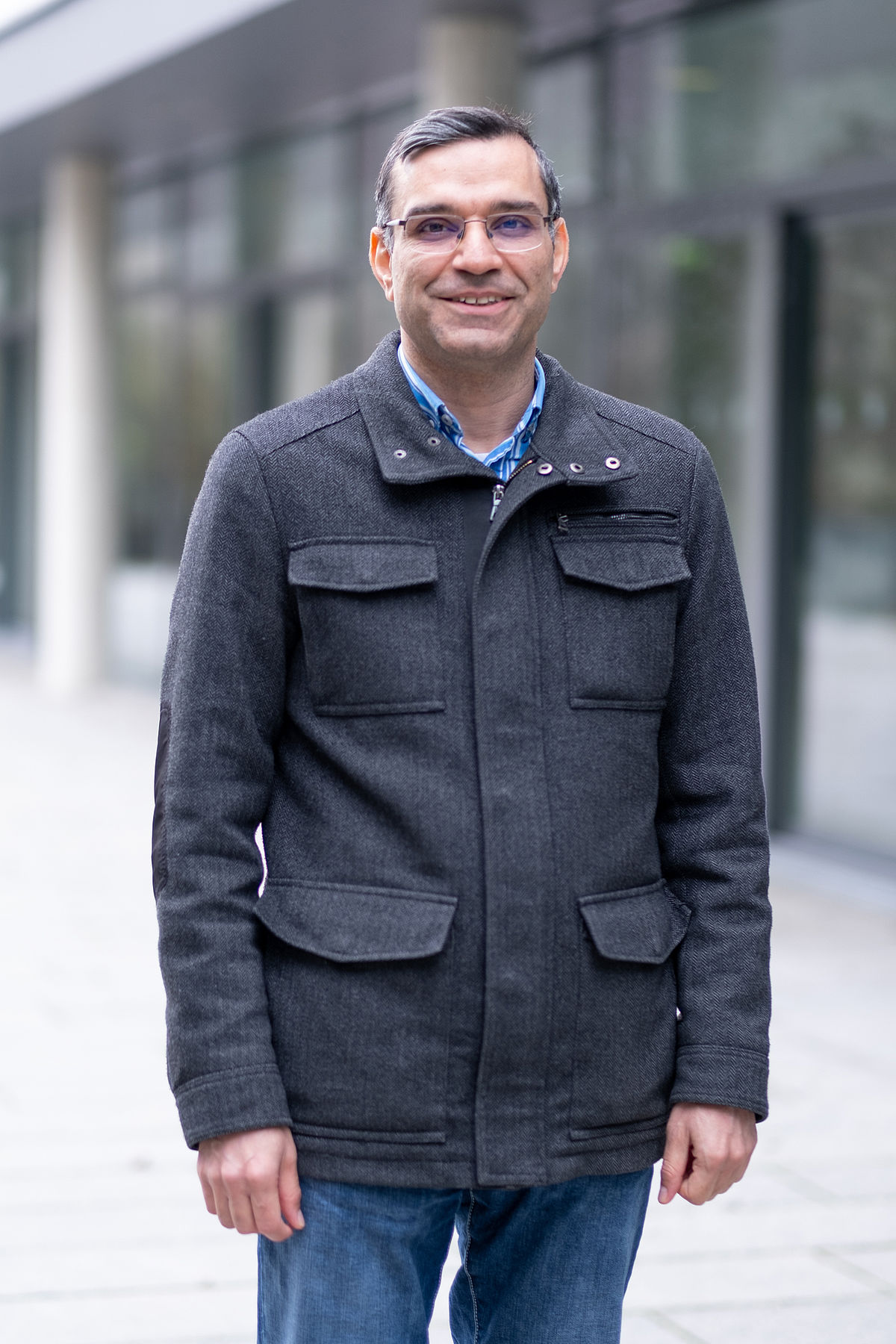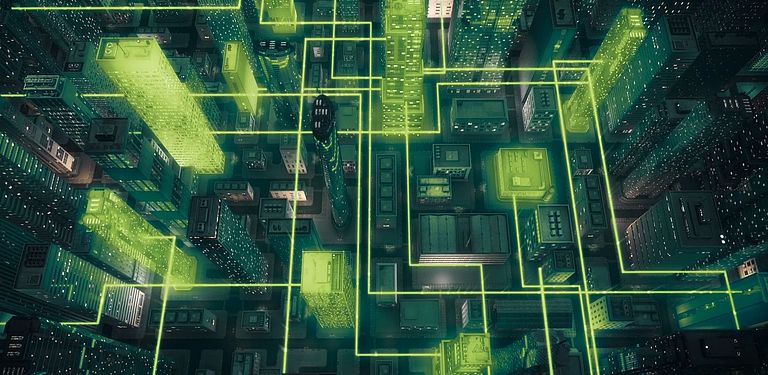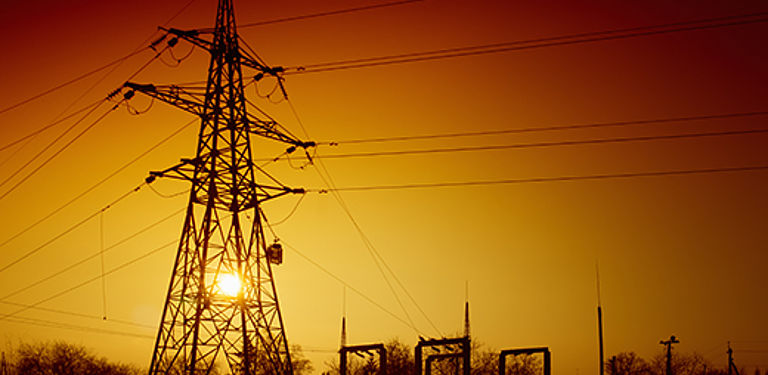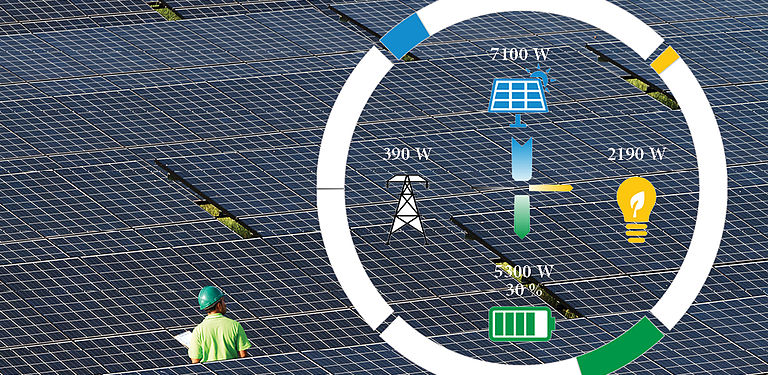Abdorasoul Ghasemi has received one of the renowned Alexander von Humboldt fellowships for experienced researchers. He came to the University of Passau in July 2021, working on resilient cyber-physical energy systems at the Chair of Computer Networks and Computer Communications held by Professor Hermann de Meer. Ghasemi is an associate professor with the Faculty of Computer Engineering of the K.N. Toosi University of Technology in Tehran, Iran. He received his Ph.D. and M.Sc. degrees from the Amirkabir University of Technology (Tehran Polytechnique), Tehran, and his B.Sc. from the Isfahan University of Technology, all in electrical engineering. He has spent periods of sabbatical leave with the computer science department at the University of California in Davis, USA (April 2017 to August 2018) and the Max Planck Institute for the Physics of Complex Systems in Dresden, Germany (December 2020 to July 2021). His research interests include network science and its engineering applications, including communications, energy, and cyber-physical systems using optimisation and machine learning approaches.
Congratulations! You have been awarded one of the renowned Alexander von Humboldt scholarships for your stay at the University of Passau. How did this come about?
The first step in the application process is to find a reputable host in Germany for your research work. It was a nice coincidence that not long ago, Professor Joachim Posegga from the University of Passau visited various universities in Iran, among them the K. N. Toosi University of Technology (KNTU) in Tehran, where I was working. He gave us an introduction to the German academic system and various research projects at the Faculty of Computer Science and Mathematics. Through his talk, I learned that one of his colleagues, Professor Hermann de Meer, has experience in researching the resiliency of interconnected power and communication systems. So I approached Professor de Meer, and we agreed on a research topic.
What is your research topic about?
In my research, I focus on the resiliency of interdependent systems. Our modern societies rely on the interdependent operation of complex infrastructure. Networks facilitate the propagation of energy, information, commodities and ideas, but they also facilitate the propagation of unwanted events. Take, for example, hurricanes or earthquakes – or just think about the recent misconfiguration in Facebook that made the whole network unavailable for hours, creating billions of dollars of damage. Failures can be propagated both in and between networks, and it is crucial to make sure that these infrastructures are resilient to these unforeseen events.
Resiliency is about stressful events that you did not foresee, but you still want the system to respond appropriately after such events.

Abdorasoul Ghasemi, asscociate professor at the K. N. Toosi University of Technology in Teheran, wants to use his Humboldt fellowship to build long-lasting ties with German researchers. Photos: University of Passau
What does the concept of resiliency mean?
When you design a system, you know that it will be prone to some failures, and you consider those failures in the design process by providing the required redundancies. This is the notion of the system's reliability in being prepared for various predicted scenarios. Resiliency is about stressful events that you did not foresee, but you still want the system to respond appropriately after such events. Resiliency is a concept that doesn't only matter in my field of expertise; it is also relevant in social, ecological and economic systems. For example, think about how different countries and communities have reacted to the shocking coronavirus pandemic, attempting to be resilient to the unwanted consequences. So there are different definitions for resiliency, but in general it refers to the ability of a system to absorb, adapt and recover after a stressful event that impacts its operation and perhaps also its structure.
What methods do you use in your specific research project here at the University of Passau?
I work on cyber-physical modern energy systems whose robust operations rely on communication and power networks, which are interdependent: the communication network monitors and sends actuating signals to the power network, and the power network provides the required energy for the communication layer. So failures not only cascade in each network but may also roll over to the other network, which consequently leads to more failures in the power grid. That is what happened in Italy in September 2003. What I do in my research is to anticipate the extreme and develop strategies for how networks should respond after these unwanted events. First, we try to use simulation scenarios, in which we attempt to consider different dependency scenarios between the networks. We use proper models to study how the failures cascade in each layer and how the coupling affects the system's robustness. We use optimisation theory to evaluate how best to be prepared for these unwanted situations.
Professor de Meer is experienced in researching resiliency as well. How do you benefit from being part of his team?
We have research group discussions, and everybody, including me, talks about his or her work. I am collaborating with three Ph.D. students on system recovery after failures, the impact of interdependency between layers, and the architecture of the system as a whole. Also, I give seminars to the group.
Am I correct in saying that you and Professor de Meer are part of a small community of international researchers who are looking into a comparatively young research topic?
The research topic is not very old. However, in recent years, we have been able to observe a growing awareness of its importance. There is an increasing number of research funds in the European Union, the United States and China. The United States and the United Kingdom have policy directives defining resiliency. The growing awareness of the importance of the topic is due to the increasing number of unexpected events in modern complex infrastructure systems.
How about Germany? Are we sensitive to the topic as well?
Yes, that's the reason I'm here. Germany is a leader in this field. For example, the German Research Foundation has a special section on the subject. Also, I have benefited from various opportunities to meet renowned researchers here at the University of Passau and during my stay at the Max Planck Institute in Dresden. With the Humboldt fellowship, I hope to build long-lasting ties with German researchers. This is in line with the intention of the Humboldt foundation: the fellowship will not end with my 18-month stay in Passau.









